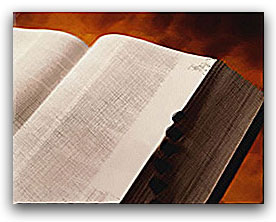
Review of the Idea
of the Dictionary
(continued)
The second part of every crossword production is, I assume, a mystical text which reveals itself only to the initiated. Without attempting to suggest that I understand the codes of the production (or what the codes are meant to produce themselves), I quote at random from p. 280: "B -- P blup, bump."
IH--
IHVH -IH- kiho
--IH ch'ih, shih
I--H IHVH, inch, itch, Ivah
Again, as support for my contention above, the only reason these
crossword books have a right to call themselves dictionaries is because
they are arranged in alphabetical order. Initiates may confirm or deny
that the various placing of the dash marks (--, - -, etc) are a nullity
which do not affect alphabeticalization. As such, they must indicate
a periodicity, or shall we call it a dashaticity, in the universe of
phenomena. In any other universe, they may represent something entirely
different. We can only speak about what we know!
Any dictionary is a physical manifestation of every word
which it contains. My statement does not contain any conscious theory
of the relationship between words and speech, nor the spirit and the
pantheistic fact. My contention is that if the dictionary is the embodiment
of a paradox, and if paradox is in the dictionary, then every word which
is in the dictionary is embodied in the dictionary. My contention requires
that I prove the sense in which the dictionary is "liquid,"
for example, or "prosaic," "nepotistic," or "DIsCreTIONARY."
I believe I have laid out the essentials of this argument in the above
paper. Nevertheless, I promise my faithful readers that I will publish
a more elaborate justification of my claim.
(Professor Wiggland D. Bartholomew, who read portions
of my paper, has been very helpful in locating weak areas in my argument.
In fact, he seemed to wished my project well with the assertion that
much of what is herein contained is an excellent example, his words,
of specious reasoning. I am very indebted to Professor Bartholomew for
his encouraging words. I have given a lot of thought to both our species
and the way we use language, and am proud to have a man as redundantly
great as Professor Bartholomew provide encouragement much needed by
a young scholar.)
Fifty-three years of study have led me to the following
conclusions: The dissimilarity and ambiguity which is inherent in the
idea of the dictionary would be eliminated if people would simply cease
speaking and stay at home to study their, or my, or another's dictionary.
The truth is [truth: the quality or state of being true; formerly, loyalty;
sincerity, honesty, conformity with fact or the conditions of reality.
Agreement with standard rule; an established or verified fact], words
mean whatever we deem them to mean. I may choose to define truth, for
example, as the thrashing spinach of the everlasting indignation or,
alternatively, as the weasel lantern mulch of good, green earth. If
I can convince you that I am making sense, then my definition is valid.
If this is so, dictionaries are obsolete.
A dictionary, then, is something which is both necessary and something which we, in a rigorous and precise sense, lack. The idea of a dictionary is a wild hypothesis which may be good in theory, but would make an appalling fact.